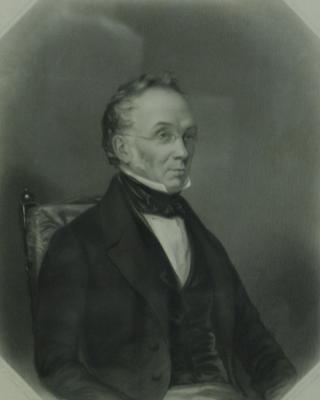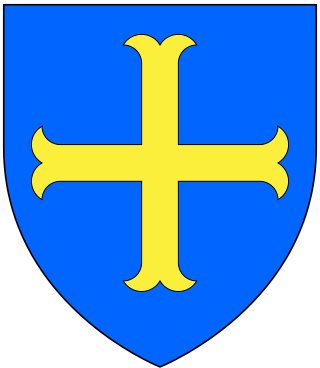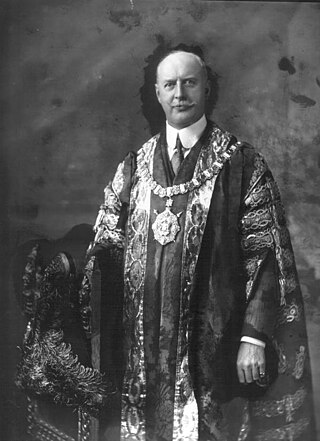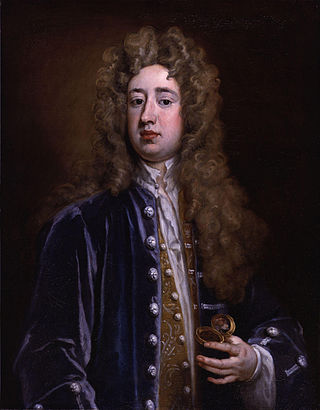Related Research Articles

George McCartney, 1st Earl McCartney, also spelt Macartney, was an Anglo-Irish statesman, colonial administrator and diplomat who served as the governor of Grenada, Madras and the British-occupied Cape Colony. He is often remembered for his observation following Britain's victory in the Seven Years' War and subsequent territorial expansion at the Treaty of Paris that Britain now controlled "a vast Empire, on which the sun never sets".

Sir William Grey Ellison-Macartney, was an Irish-born British politician, who also served as the Governor of the Australian states of Tasmania and Western Australia.

Sir George Leonard Staunton, 1st Baronet was an Anglo-Irish botanist, diplomat, physician, judge and planter who was an employee of the East India Company.

Sir William Brown, 1st Baronet DL was a British merchant and banker, founder of the banking-house of Brown, Shipley & Co. and a Liberal politician who sat in the House of Commons from 1846 to 1859.
The Honourable Reginald James Macartney Greville-Nugent was an Irish politician, the younger son of Fulke Greville-Nugent, 1st Baron Greville.
Sir Arthur Gore, 1st Baronet was an Irish soldier and politician.
There have been six baronetcies created for persons with the surname Brooke, one in the Baronetage of England, one in the Baronetage of Ireland and four in the Baronetage of the United Kingdom. As of 2015 four of the creations are extant, though one has been subsumed into a peerage.

Sir John Milne Barbour, 1st Baronet JP, DL was a Northern Irish politician and baronet. As a member of the Privy Council of Northern Ireland he was styled The Right Honourable Sir Milne Barbour.

There have been three baronetcies created for descendants of the ancient Norman family of Molyneux who were granted extensive estates in Lancashire after the Norman Conquest.

Sir William Frederick Coates, 1st Baronet was an Irish stockbroker and politician in Belfast.

Sir Henry Vane-Tempest, 2nd Baronet was a British politician. In early life his name was Henry Vane. He changed his name to Vane-Tempest when he inherited from his uncle John Tempest, Jr. in 1793.
John William Ellison-Macartney, born John William Ellison, was a barrister and Irish Conservative Party politician elected to the House of Commons of the United Kingdom of Great Britain and Ireland. From 1874 to 1885, he was Member of Parliament (MP) for Tyrone.
The Sheriff of County Dublin was the Sovereign's judicial representative in County Dublin. Initially, an office for a lifetime, assigned by the Sovereign, the Sheriff became an annual appointment following the Provisions of Oxford in 1258. The first recorded Sheriff was Ralph Eure, appointed in that year. The next recorded Sheriff was Sir David de Offington, who was Sheriff in 1282. Besides his judicial importance, the sheriff had ceremonial and administrative functions and executed High Court Writs.

Sir Robert Anderson, 1st Baronet, was an Irish businessman, High Sheriff and Lord Mayor of Belfast.
Sir John Macartney, 1st Baronet was an Irish Member of Parliament.
Randal William MacDonnell, 1st Marquess of Antrim KB was an Irish peer.

Lieutenant-General George Macartney or MacCartney was an Irish-born professional soldier who went into exile to escape charges for his role in the 1712 Hamilton–Mohun Duel. He was later acquitted and restored to his military rank.
Sir Thomas Southwell, 1st Baronet, of Castle Mattress was a high sheriff of County Kerry under the Protectorate.
Hercules Langford Rowley PC was an Irish politician and landowner.
Sir Hercules Langford, 1st Baronet was an Anglo-Irish baronet, merchant and landowner.
References
- 1 2 3 Edith Mary Johnston-Liik, MPs in Dublin: Companion to History of the Irish Parliament, 1692-1800 (2006) p. 104.
- 1 2 Sir Bernard Burke, A Genealogical and Heraldic Dictionary of the Landed Gentry of Great Britain and Ireland (1863) vol. II, p. 926.